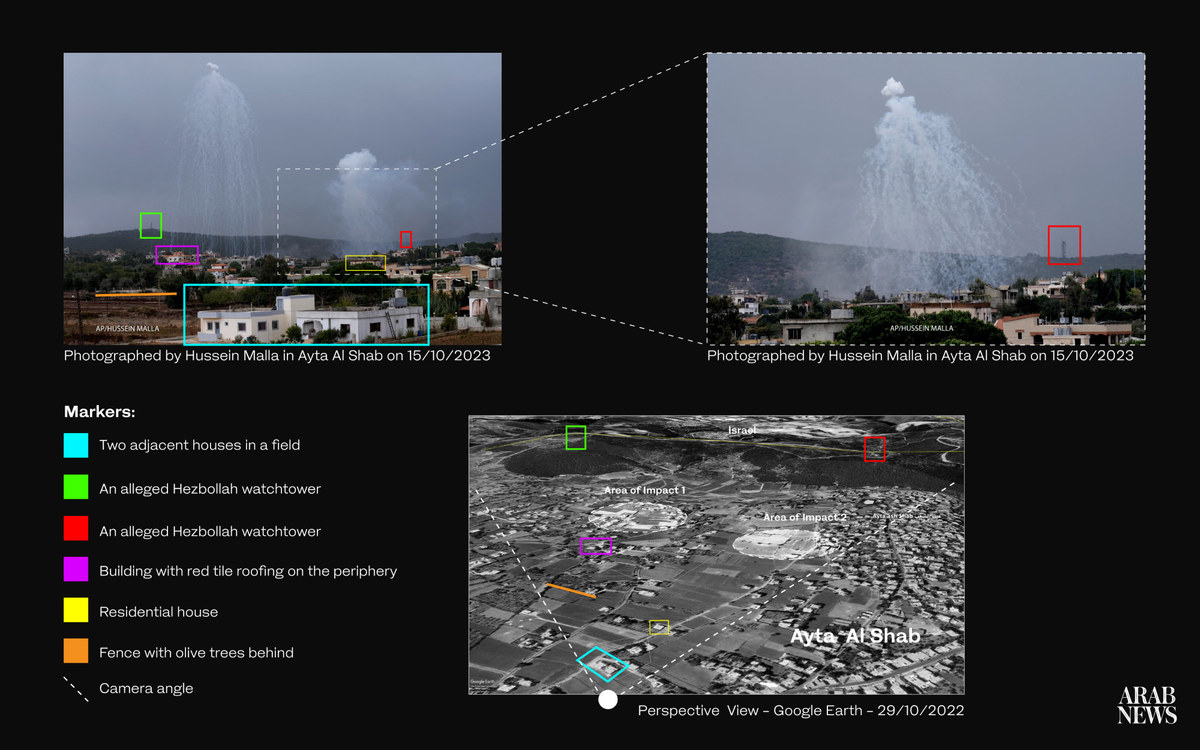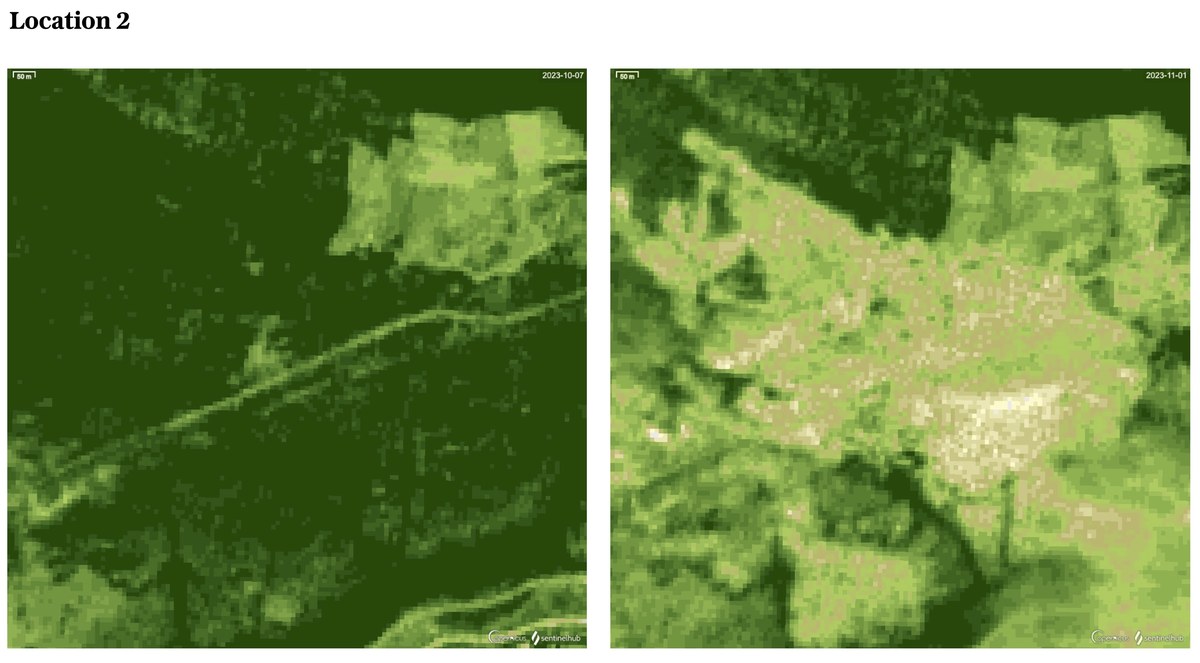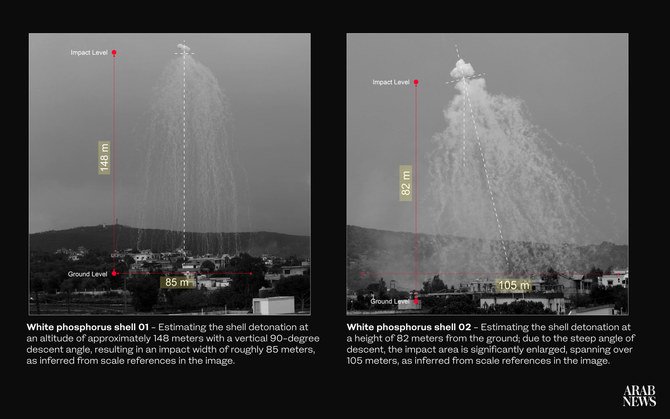- Arab News has independently verified images of attacks using advanced open-source intelligence tools
- The Israeli military maintains it only uses the incendiaries as a smokescreen and not to target civilians
LONDON/AMSTERDAM: Along Lebanon’s southern border with Israel, stretching from coastal Naqoura in the west to Houla in the east, adjacent to the UN-administered Blue Line, visitors have long been greeted by a striking vista of green-blanketed mountains.
Today, however, whole swathes of this landscape, covered with oaks, pines, and trees abundant with apples and olives, have been left barren — scorched by white phosphorus, allegedly rained upon the hills by Israeli forces to deprive Hezbollah militants of tree cover.
Since the Hamas attack on southern Israel on Oct. 7, Hezbollah fighters sympathetic to the Palestinian militant group have been trading fire with Israeli forces along the border, raising fears of a new front in the Gaza conflict and a wider regional escalation.
Hassan Nasrallah, the leader of Hezbollah, gave a live-streamed speech on Friday in Beirut’s Ashura Square in which he praised the Oct. 7 attack, but stopped short of announcing that his followers had fully joined the Israel-Hamas war.

He did however warn that fighting on the Lebanon-Israel border would not be limited to the scale seen so far and that further escalation in the north was a “realistic possibility.”
Despite urgent appeals for calm from the UN Interim Force in Lebanon stationed along the Blue Line, marks of these initial skirmishes between Israel and Hezbollah are already visible on the landscape.
About 40,000 hectares of green field and agriculture — including 40,000 olive trees — have been burned on the Lebanese side of the border in recent weeks, according to sources close to Lebanon’s Ministry of Environment.



“They really want to burn everything in front of them so that they see more clearly. And they won’t allow Hezbollah or the Lebanese army to hide behind those greeneries or bushes,” Najat Aoun Saliba, a Lebanese lawmaker and chemistry professor at the American University of Beirut, told Arab News.
According to human rights monitor Amnesty International, the Israel Defense Forces have been using shells containing white phosphorus — an incendiary weapon — against targets inside Lebanon.
“It is beyond horrific that the Israeli army has indiscriminately used white phosphorus in violation of international humanitarian law,” Aya Majzoub, deputy regional director for the Middle East and North Africa at Amnesty International, said in a report published on Tuesday.
“The unlawful use of white phosphorus in Lebanon in the town of Dhayra on Oct. 16 has seriously endangered the lives of civilians, many of whom were hospitalized and displaced, and whose homes and cars caught fire.”
Source: Arab News



